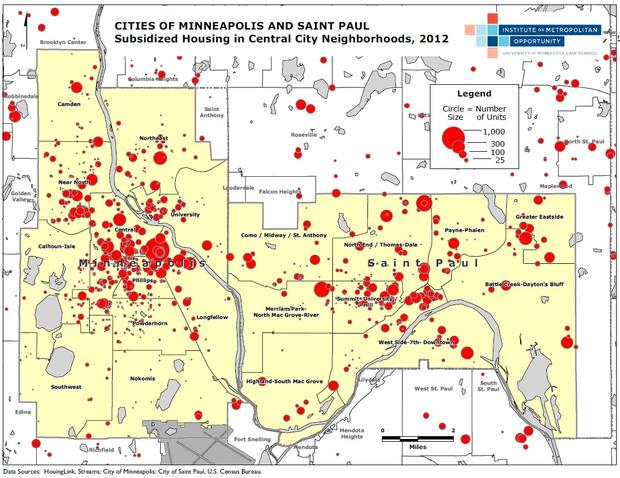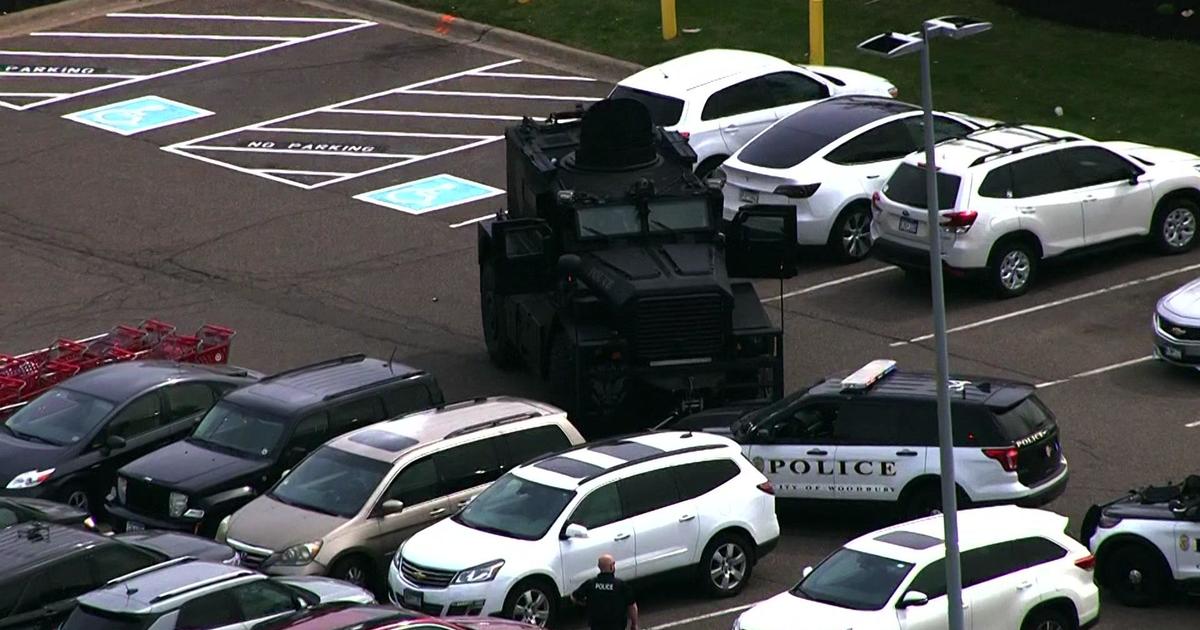Is Gentrification A Problem In The Twin Cities? Not How You'd Think, Study Says
MINNEAPOLIS (WCCO) -- For many poor, urban residents of American cities, a crisis is looming -- gentrification. It's what happens when wealthier residents start moving into poorer neighborhoods. The change drives up the cost of living and housing, forcing lower-income residents out their historical neighborhoods, further and further outside the city.
Studies show that this has been a serious problem in cities that are seeing an big influx of young, white, upper-class professionals, like San Francisco, New York and Washington D.C. But are poor Twin Cities neighborhoods being gentrified too?
"What this study suggests is that the poorer, nonwhite neighborhoods aren't gentrifying -- they're getting poorer," says Myron Orfield, director of the University of Minnesota's Institute of Metropolitan Opportunity. "The whiter neighborhoods in the city and the suburbs are gentrifying."
A recent study from the Institute tracked 12 socioeconomic factors over time -- like median income, race, home values and rent prices -- to determine if a particular neighborhood is gentrifying. Orfield says the data don't show rising incomes and housing costs in the Twin Cities' poorest neighborhoods, and the populations aren't gentrifying at all. In fact, Minneapolis and St. Paul are getting even more segregated.
While it's true that the Twin Cities have a population that's a lot more white and homogenous than other cities facing segregation issues, Orfield says cities with similar demographics like Portland and Seattle just aren't seeing the same changes.
So what's causing this shift? Orfield says it's the city's attitude toward affordable housing, based on a premise his team's study disproves.
"A lot of the public agencies are building a lot of affordable housing in very poor, non-white neighborhoods," Orfield said. "And they're doing it because they assume that these neighborhoods are gentrifying."
The Institute's study, titled "Are Minneapolis And St. Paul Gentrifying?" says that practice is making the Twin Cities more segregated by race and wealth, on par with cities like Chicago and Milwaukee, and could lead to problems those cities are already facing.
Problems Of Segregation, For Richer Or Poorer
Orfield says the Twin Cities' growing segregation problem could have devastating consequences for struggling neighborhoods.
"When kids go to segregated schools, they're much more likely to drop out, they're much less likely to go to college, they're much more likely to go to prison," Orfield said. "People that live in segregated neighborhoods are much more likely to be the victim of a violent crime, to have health issues and to live shorter lives."
Other research supports those claims: Most public schools are primarily funded through property taxes, and low home prices means fewer property tax dollars collected. Similarly, businesses are less likely to open in low-income neighborhoods, leading to "grocery deserts" which can lead to problems with nutrition and overall health.
But it's not just the poor neighborhoods that can be affected -- segregation can cause problems for the entire city. Orfield says cities with similar segregation problems have trouble attracting big employers.
"The most segregated places in the country tend to not grow very well," he said. "People don't really want to locate businesses or locate workers to places that are growing segregated."
That can mean fewer jobs, opportunities and money flowing into the local economy, and fewer tax dollars to address those problems.
A History Of Successful Integration
The institute's study says the issue of segregation hasn't always been a problem in the Twin Ciites. In fact, Minneapolis and St. Paul were once the most integrated cities in the country.
After World War II, the practice of redlining left cities across the country deeply segregated, including Minneapolis and St. Paul. But Orfield says the Twin Cities' commitment to affordable housing in wealthy areas helped reverse those problems in the 1970s.
"They did a really good job of building [affordable housing] in more affluent neighborhoods between 1971 and 1986," Orfield said. "And then in the late 80s, Minneapolis and St. Paul fought at the legislature to get affordable housing moved back into the cities."
Areas like north Minneapolis were the hit the worst after the housing bubble burst in 2008, and unlike other parts of the city, prices still haven't bounced back. Meanwhile, wealthier neighborhoods like southwest Minneapolis were hurt relatively little, and some have even surpassed pre-2008 peaks.
Why Is This Happening?
So why is affordable housing going up in neighborhoods that don't need it? As with most things in politics, the answer is money. Orfield says the contractors that build affordable housing units for the cities have an interest in where their buildings go up.
"We did a study about this. They can make at least 30 percent more in these poorer neighborhoods," Orfield said. "They like to build in poor neighborhoods because there's much less opposition to affordable housing and they can charge a lot more. If you build in a white neighborhood, you have to go to lots of meetings and the budgets aren't quite as big."
Orfield says efforts from companies like LISC, Dominium, Aeon and a nonprofit called the Family Housing Initiative are driving affordable housing complexes away from areas that need it most.
Though not all affordable housing units are in poor neighborhoods, most are. The Institute's study found 53.3 percent of all subsidized housing units were in the city's perceived gentrifying neighborhoods, but says that percentage would likely be higher if the boundaries were redrawn to reflect socio-economic borders.
When reached for comment on the Twin Cities affordable housing policy, the Family Housing Initiative declined to comment. Authorities in the Midwest office of the Federal Housing Authority did not immediately return a request for a statement.
You can read the full study, along with more research about segregation in the Twin Cities, at the Institute for Metropolitan Opportunity's website.




